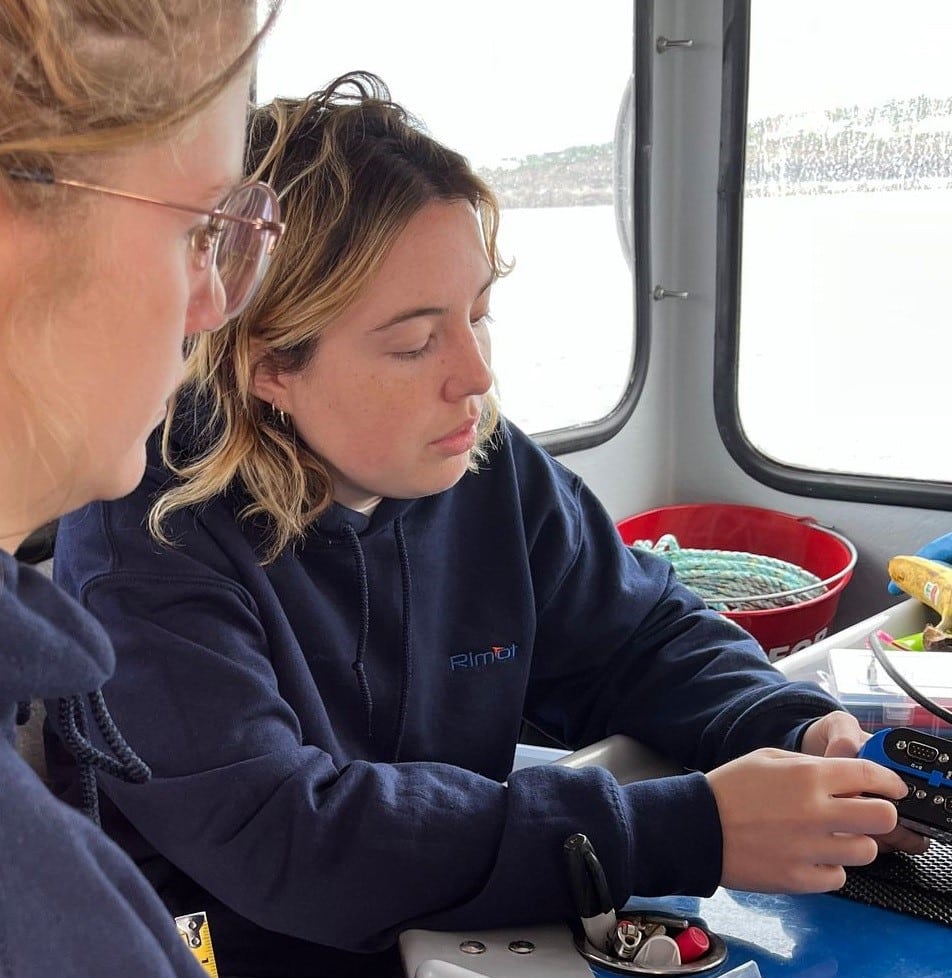This year, the COVE Internship Program welcomed its largest group of students since the program launched in 2018. Of the thirty-five students hailing from nine universities across the country, none have travelled farther than Rimot intern, Erika Pineo.
Originally from Nova Scotia, Erika left for the West Coast to pursue an undergraduate degree in Electrical Engineering from The University of British Columbia. Having already completed four co-op terms in the power utility industry, Erika had her sights set on gaining experience in the ocean sector for her fifth and final placement.
With no clear path to an ocean sector placement, she decided to create her own. She began by cold calling an employee of MacArtney Underwater Technology to inquire about internship opportunities. Unfortunately, they had nothing available at the time.
However, the call did result in Erika being pointed in the right direction, as she was put in touch with Marine Renewables Canada (MRC). After becoming a student member of MRC, she received an invite to attend the organization’s annual conference in November of last year, taking place in Nova Scotia.
Thanks to receiving a professional development grant from her university, she was able to attend. It was here that she would meet COVE’s Chief Operating Officer Sheila Paterson, who invited her to come take a tour of COVE.
After seeing the facility and learning about the COVE Internship Program, Erika was sold. She applied as soon as she returned to B.C. and was eventually accepted for a Marine Engineering placement with Rimot.
“Many stars had aligned for me to discover COVE and get involved with this internship,” said Pineo. “I am really intrigued by the marine sector and all the innovation that’s happening within this space, so I’m grateful everything worked out for me to end up here.”
The sixteen-week COVE Internship program provides a unique opportunity for students to engage in relevant and challenging project-based work with integrated learning modules, while receiving mentorship from industry leaders. Only a few weeks in, Erika is already making the most of her internship, contributing to several projects underway at Rimot.
“My main focus is on the Energy Voyage Profiling (EVP) initiative, which is where we collect data from both in-shore and off-shore lobster fishing vessels. We look at their typical voyage and energy usage to support the development of, and transition to, electrification of lobster boats,” she said. “The second part of my work is with Vessel to Grid (VxG) connection. Once these vessels are electrified, it’s connecting them back to the power grid to provide value to both the ship owner and the utility in the form of available stationary energy storage. I am grateful that this position has allowed me to apply my utility experience from my previous co-op positions while learning about the new technology developing in the ocean sector, which has been both exciting and rewarding.”
Erika has enjoyed having the opportunity to engage with fishing crews and communities during site-visits to install the EVP equipment, where she is able to listen to their perspectives on electrification, and then incorporate it into how Rimot moves forward as a company.
Erika finding her way to COVE from across the country through a series of connections may seem like happenstance, but, perhaps with her passion for the ocean sector coupled with COVE’s growing presence, it was destined to happen. Increasingly, in the world of ocean technology, thanks to COVE, all roads lead to Nova Scotia.


